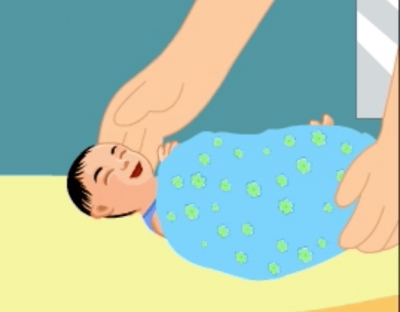The Mycobacterium tuberculosis bacterium causes TB. In the beginning of 19th century TB was a major epidemic and caused many deaths but with the discovery of the cause of TB to be a bacteria by German scientist Robert Koch. MAny vaccines and drugs were discovered which could prevent and treat Tuberculosis.
The World Health Organization estimates that 9 million people a year get sick with TB and TB is among the top 3 causes of death for women aged 15 to 44.
There are two kinds of TB
- Latent TB The bacteria remain in the body in an inactive state. They cause no symptoms and are not contagious, but they can become active.
- Active TB - the bacteria do cause symptoms and can be transmitted to others.
- TB usually affects individuals or babies with weak immunity. As TB spreads through the air when a person with TB (whose lungs are affected) coughs, sneezes, spits, laughs, or talks. It is usually seen in overcrowded settlements. The bacteria when inhaled attacks the lungs first and can then spread to other organs.
- Symptoms such as a Persistent cough, low-grade fever, loss of weight, blood tinged sputum, chest pain and persistent sweating should raise an alarm and should be checked by the doctor.
- In children, TB can affect the coverings of the brain causing meningitis. It usually affects children in the age group of 1 to 4 years.
When a child is diagnosed with TB, the child may have to go through treatment for 6 to 9 months. It can also lead to various complications.
So how do we prevent TB?
- Staying away from TB patients. But sometimes the patient may not exhibit any symptoms and be close to them and if the child has low immunity, the child can easily contract TB
- Well ventilated homes
- BCG vaccine can prevent at least the complications of TB
When and how is BCG vaccine given?
Newborn babies can be given the vaccine soon after birth. It is given in the left upper arm of the child. After a week of its administration, a small papule may be formed, which may develop a few days later into a vesicle and then may form. It may sometimes be red and also have some discharge. No need to apply any antibiotic cream. Wiping with a sterile cotton is enough. After a few weeks, a scar is formed at the point of administration of the vaccine. If the swelling is seen at the site of injection and if the child suffers from fever, please see your doctor.
Not every country that could do so gives the vaccine to all children. Generally, countries, where there is a high level of TB, use the BCG vaccine to vaccinate all children. Some countries with a low level of TB, such as the United States and England do not give all children the vaccine, but only those considered at particular risk.
People who have had the BCG vaccine will often then have a positive result to a TB skin test. This makes it more difficult to establish whether someone has latent TB. This is one of the reasons that the vaccine is not used in some countries. Infants less than 6 months of age do not need to be tested with a tuberculin skin test (the Mantoux test) before the administration of BCG, but those over six months of age do. The skin test will often be given before BCG vaccination. If there is a positive result to the skin test indicating that the person already has some immunity to TB, then the BCG vaccination will not be given. Giving the BCG vaccine to someone who already has some immunity, provides no benefit and could cause unpleasant side effects.
What is the vaccine made of?
BCG vaccine contains a live but very weakened form of a bacteria called Mycobacterium bovis. This is not the same bacteria though as the bacteria that causes TB in humans, which is called Mycobacterium tuberculosis
After the vaccine is given
- Rub the skin for a few seconds
- The baby may be a little fussy, let the child rest
- Avoid tight clothes
- Breastfeed the baby normally
- In case of fever ask your doctor for fever relieving or pain-relieving medication

